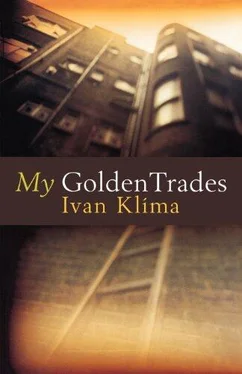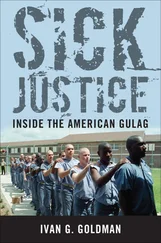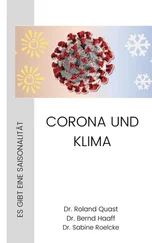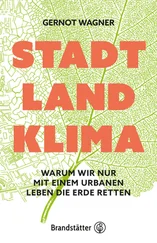Ivan Klima - My Golden Trades
Здесь есть возможность читать онлайн «Ivan Klima - My Golden Trades» весь текст электронной книги совершенно бесплатно (целиком полную версию без сокращений). В некоторых случаях можно слушать аудио, скачать через торрент в формате fb2 и присутствует краткое содержание. Год выпуска: 1998, Издательство: Granta UK, Жанр: Современная проза, на английском языке. Описание произведения, (предисловие) а так же отзывы посетителей доступны на портале библиотеки ЛибКат.
- Название:My Golden Trades
- Автор:
- Издательство:Granta UK
- Жанр:
- Год:1998
- ISBN:нет данных
- Рейтинг книги:4 / 5. Голосов: 1
-
Избранное:Добавить в избранное
- Отзывы:
-
Ваша оценка:
- 80
- 1
- 2
- 3
- 4
- 5
My Golden Trades: краткое содержание, описание и аннотация
Предлагаем к чтению аннотацию, описание, краткое содержание или предисловие (зависит от того, что написал сам автор книги «My Golden Trades»). Если вы не нашли необходимую информацию о книге — напишите в комментариях, мы постараемся отыскать её.
My Golden Trades — читать онлайн бесплатно полную книгу (весь текст) целиком
Ниже представлен текст книги, разбитый по страницам. Система сохранения места последней прочитанной страницы, позволяет с удобством читать онлайн бесплатно книгу «My Golden Trades», без необходимости каждый раз заново искать на чём Вы остановились. Поставьте закладку, и сможете в любой момент перейти на страницу, на которой закончили чтение.
Интервал:
Закладка:
'Do you think I could have something to eat? I'll pick something cheap.'
'Order anything you'd like.'
'You haven't told me anything about you yet.'
'That's not important, after all.'
'All right, if it's not important, I'll have the wiener-schnitzel.'
'I was a teacher once myself,' I said. 'But only for half a year.'
'What did you teach?'
'Literature.'
'At university?'
'Yes.'
'Can you tell me something about literature?'
'What do you want to know?'
'What does it mean?'
'It's an encounter.'
'Who with?'
'With another person. The one who wrote the book.'
'I prefer live people.'
'So do I, mostly.'
The waiter brought her food.
'Thank you,' she said. 'You're very kind to me. That's what I thought when I first saw you: maybe that's what he'd have looked like if. .'
'Do you still think about him?'
'I'm sorry, I know it's not — polite.' For a while she ate in silence. Then she said, 'You know, they say that when you have that illness, it's really important how the sick person feels — his mental health. But I did look after him all that time, really well. And then, he couldn't even move, or anything. And Libor came to visit him too.'
'Who?'
'Libor — the one I married afterwards. He and Karel were friends. They worked in the same place. When Karel's illness began, lots of people came to visit, but then there
were fewer and fewer, you know how it is. In the end, only Libor came.'
'Because of you.'
'He helped me. It wasn't until. . But by that time, we knew it was the end.'
'Did your husband know it too?'
'I'm not sure what you mean.'
'Did he know Libor was coming because of you?'
'I don't know. We didn't do anything in front of him that might have. . But now sometimes I wonder… In those final weeks, I would sometimes get ready and go out in the evening… I was awfully tired. . No, not tired, really, but overwhelmed, and so I went out with Libor while my poor husband just lay there. He couldn't even move, or look out of the window to see where I was going. '
'Didn't he ask you?'
'No, he never did. He'd say: go out somewhere, go out and have some fun. You don't want to be cooped up with me all the time. He also asked me to put him in the hospital, but I knew he didn't really want that, that he was terrified of dying surrounded by strangers.'
'So you didn't put him in the hospital?'
'No!'
'That probably meant a lot to him.'
'Do you think so? Those final days keep coming back to me. The horror of it, and at the same time, the relief when it was all over. I was relieved. Don't you think that's awful? Someone I loved dies, and I feel relieved.'
'It's understandable.'
'I sometimes think that what happened afterwards was a punishment. Because I couldn't wait.'
'No, you mustn't think that way.'
'Forgive me. Here you are, treating me to a meal, and I'm carrying on like this.' She drained her glass. 'I only wanted you to know why I never smile. But now I can, now that I've told you all this. Now that you know what I'm capable of.'
Under the table, I could feel her shifting her leg to touch mine. Perhaps she hadn't made love to anyone for ages and was longing to be embraced and therefore offering herself to me. I only had to go with her, or invite her for a stroll in the wood that was just a short walk from here. Then again, perhaps this was just me, a man, imagining her longing. Perhaps she didn't really need to make love, perhaps she merely longed to hear words of absolution. Or she needed both, but felt that if she wanted absolution, she had to offer herself first. So I said something about how I thought she was more capable of good than of bad, then I paid the bill. We parted, saying that we'd certainly run into each other again.
When I went back to the office, the only one left was Miss Kosinová, her eyes red from crying. She told me that Mr Vandas's wife had died from an embolism. The funeral would probably be next Tuesday. Tomorrow they would take up a collection for a wreath. 'But you don't have to contribute,' Miss Kosinová said. 'You didn't know her, after all.'
Three
IN THE FOURTH-FLOOR office only the pretty manager was left. She was reading the satirical weekly Dikobraz and taking great pleasure from the fact that there was even greater chaos elsewhere in the economy than here. 'There's nothing today, again,' she said, welcoming me, 'but they say you should stop by in Vrsovice about nine. The labels have arrived. About twenty packages of them. That is, if you still feel like hauling them around on your last day.'
'I'm actually looking forward to it,' I said. 'I've had nothing to do this week.'
'I wouldn't worry — not for the money you're getting.'
It seemed to me that they were giving me quite enough money for carrying a few extra bags along with the mail, but I said nothing.
'I heard you're going to be cooking something interesting at Chodov today. Is it true?' asked the manager.
'It's a farewell party.' I had let it slip that cooking used to be a hobby of mine.
'And what's on the menu, if I may ask?'
'Chicken à la Rawalpindi,' I said, off the top of my head, because if I like anything about cooking, its the possibility of inventing new and apparently nonsensical taste
combinations.
'Sounds exotic.'
'You're coming to try it out, aren't you?'
'I don't know,' she said. 'The end of the month, one deadline after another, and reports to fill out. And the deputy-director wants the plan for the next six months ready.'
I said I'd be delighted if she could come, and then, as usual, the telephone rang, and I had nothing else to do here anyway.
It was only seven-fifteen — I had a lot of time left before nine. When it's your last day as a courier, you should have something more important to deliver than a bundle of perforated labels. But my letters to the President of the Republic were still not ready to send.
The trolley-bus to Jinonice had long ago been taken out of service and replaced with a regular bus. I went to the last stop and looked around me, feeling perplexed. I hadn't been here in all that time. It was childish to expect nothing to have changed.
I wandered about the housing project for a while in the hope that somewhere at the end of it, I'd find the narrow street with the little country cottages.
This early in the morning, the empty spaces between the high-rises were deserted. The grass was covered with rubbish. Every time there was a gust of wind, large sheets of plastic would rise off the ground and flap in the air like the wings of great doleful birds.
I couldn't remember the name of the street — only the name of the man, which was of no use to me. I would probably only find it in the cemetery.
I had delivered many letters and many messages since
that first one. But I still think that message was the most important of all — at least for me.
In Vrsovice, the mainframe computer was on the second floor; it occupied a huge hall, while the programmers sat in their cubicles in front of their terminals. Miss Kosinová was watching rows of coloured numbers dancing across her screen. The figures stopped and the screen became still. Kosinová looked at it for a while longer, then she turned to me and said, 'You came at a bad time.'
'Is the system down?' I asked.
'No, just overloaded.' She explained that this type of American computer normally has ten times the memory, but the Americans aren't allowed to export computers with that kind of capacity to Czechoslovakia. They had warned our buyer not to attach more than ten terminals, but they'd gone ahead and connected three times that many anyway, hoping they could get the extra memory capacity from somewhere else. They hadn't. 'It's like everything else; we wait in line and hope we can scrounge a few extra minutes. And if we're lucky they let us stay here a couple of extra hours. When there's a greater demand, we always get bumped completely. But it doesn't really matter,' she added. 'We work ourselves to a frazzle and then the results just sit upstairs on somebody's desk. And even if someone does read them, no one does anything about it. Never mind about those labels,' she said, realizing why I had come. 'We'll manage to deliver them somehow.'
Читать дальшеИнтервал:
Закладка:
Похожие книги на «My Golden Trades»
Представляем Вашему вниманию похожие книги на «My Golden Trades» списком для выбора. Мы отобрали схожую по названию и смыслу литературу в надежде предоставить читателям больше вариантов отыскать новые, интересные, ещё непрочитанные произведения.
Обсуждение, отзывы о книге «My Golden Trades» и просто собственные мнения читателей. Оставьте ваши комментарии, напишите, что Вы думаете о произведении, его смысле или главных героях. Укажите что конкретно понравилось, а что нет, и почему Вы так считаете.












